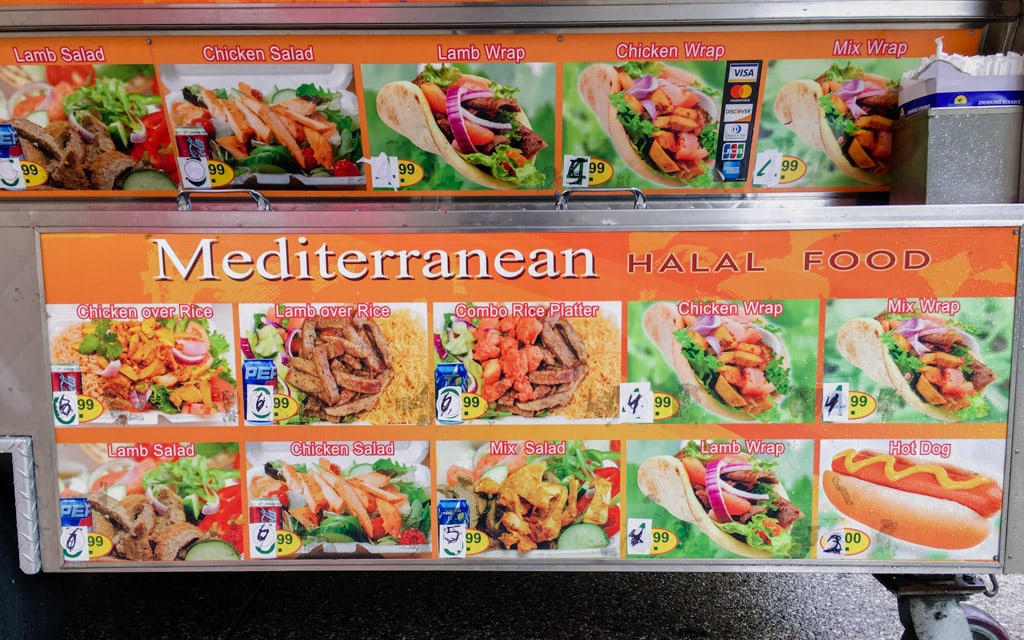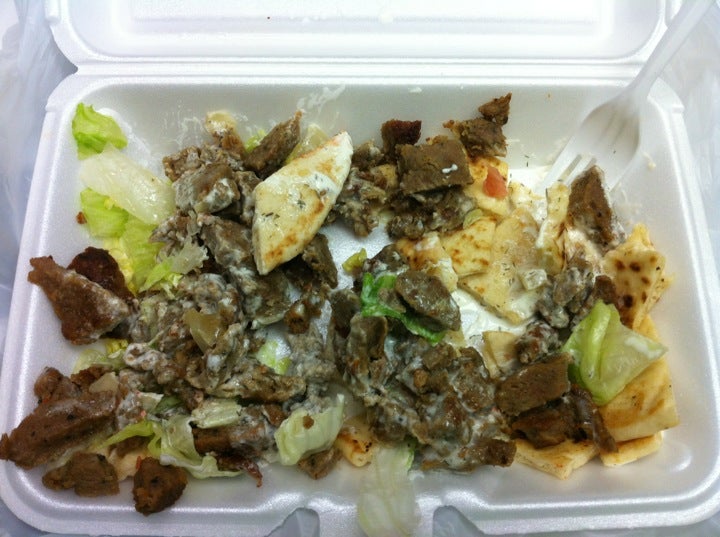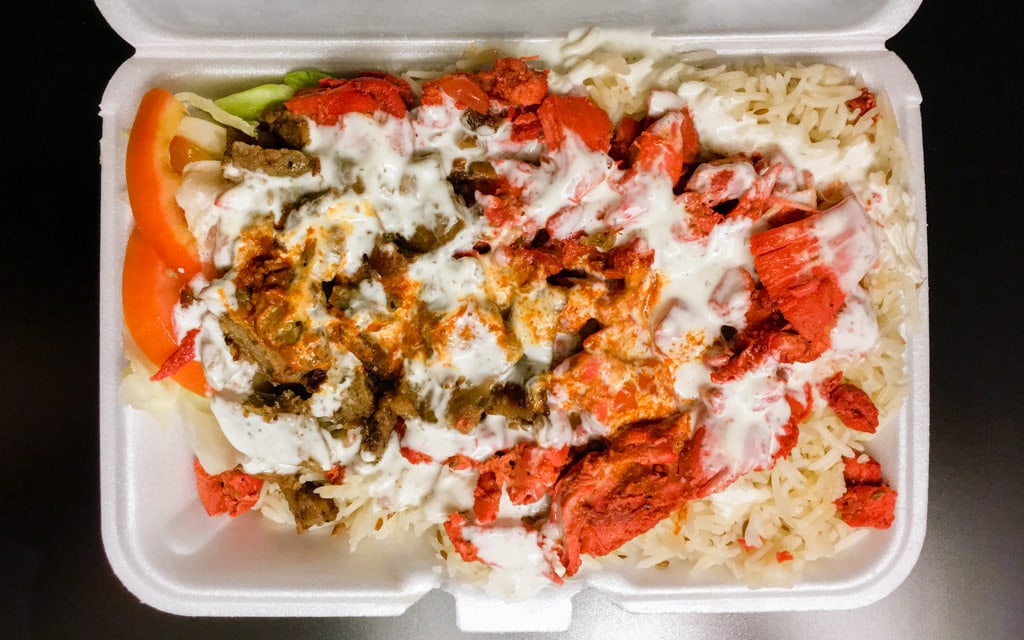Mediterranean halal meals is a colourful and flavorful delicacies that tantalizes the style buds and nourishes the frame. Originating from the shores of the Mediterranean Sea, this culinary custom has been formed by way of a wealthy tapestry of cultures and religions, leading to a singular and delectable fusion of flavors.
From the bustling souks of Morocco to the sun-kissed seashores of Greece, halal Mediterranean delicacies showcases a various array of dishes which are each unique and approachable. Whether or not you are a seasoned foodie or just interested in exploring new culinary horizons, this gastronomic journey guarantees to thrill and encourage.
Halal Mediterranean Delicacies
Halal Mediterranean delicacies is a culinary custom that clings to Islamic nutritional rules, referred to as halal. It contains a numerous vary of dishes and flavors from international locations bordering the Mediterranean Sea, corresponding to Turkey, Morocco, Egypt, Lebanon, and Spain.
The origins of halal Mediterranean delicacies can also be traced again to the Arab conquest of the Mediterranean area within the seventh century. The Arab investors and settlers presented their culinary practices and components to the native populations, mixing them with current culinary traditions.
Cultural and Spiritual Influences
Halal Mediterranean delicacies is closely influenced by way of the cultural and non secular practices of the area. Islamic nutritional rules restrict the intake of beef and alcohol, which has formed the improvement of halal Mediterranean dishes.
Moreover, the area’s numerous cultural heritage has contributed to the number of flavors and cooking ways present in halal Mediterranean delicacies. Turkish delicacies, as an example, is understood for its use of yogurt and spices, whilst Moroccan delicacies is characterised by way of its colourful tagines and couscous dishes.
Elements and Flavors

Halal Mediterranean delicacies is a colourful and flavorful culinary custom that attracts inspiration from the various cultures of the Mediterranean area. The dishes are characterised by way of their use of unpolluted, seasonal components and a harmonious mix of spices and herbs.
Not unusual components in halal Mediterranean delicacies come with:
- Greens: tomatoes, onions, peppers, zucchini, eggplant
- End result: lemons, oranges, olives, dates, figs
- Grains: rice, wheat, barley
- Legumes: chickpeas, lentils, beans
- Meat: lamb, red meat, rooster
- Seafood: fish, shrimp, mussels
- Dairy: yogurt, cheese
- Spices and herbs: cumin, coriander, paprika, oregano, thyme
The original flavors of halal Mediterranean delicacies come from the combo of those components and the usage of conventional cooking ways corresponding to grilling, roasting, and stewing. The dishes are ceaselessly seasoned with a mix of spices and herbs that provides them a heat and savory taste.
The combo of unpolluted components, fragrant spices, and conventional cooking ways creates a harmonious and flavorful enjoy this is each pleasant and wholesome.
Freshness and Seasonality
One of the vital key traits of halal Mediterranean delicacies is its emphasis on contemporary, seasonal components. The dishes are usually made with greens and culmination which are in season, which guarantees that they’re at their top of taste and dietary price.
Spice Blends
Every other necessary facet of halal Mediterranean delicacies is the usage of spice blends. The most typical spice blends come with cumin, coriander, paprika, oregano, and thyme. Those spices are used to create a heat and savory taste this is function of the area.
Cooking Tactics
The standard cooking ways utilized in halal Mediterranean delicacies additionally give a contribution to the original flavors of the dishes. Grilling, roasting, and stewing are not unusual cooking strategies that let the flavors of the components to meld in combination and create a fancy and pleasant dish.
Common Dishes
Halal Mediterranean delicacies boasts a tasty array of dishes that tantalize the style buds and replicate the wealthy cultural heritage of the area. From savory stews to colourful salads and fragrant grilled meats, each and every dish tells a tale of culinary traditions and regional influences.
The culinary panorama of halal Mediterranean delicacies is as numerous because the international locations that border the Mediterranean Sea. Regional permutations abound, with each and every nation including its personal distinctive contact to those vintage dishes.
Mediterranean Mezze
Mezze, a collection of small dishes served as appetizers, is an integral a part of Mediterranean delicacies. Those bite-sized treats be offering a lovely solution to pattern a number of flavors and textures. From creamy hummus and tangy baba ghanoush to crispy falafel and savory borek, mezze platters are a dinner party for the senses.
Grilled Meats
Grilled meats are a cornerstone of halal Mediterranean delicacies. Lamb, red meat, and rooster are marinated in aromatic herbs and spices prior to being grilled to perfection. Whether or not it is succulent lamb chops, soft red meat kebabs, or juicy rooster shawarma, grilled meats are a staple of Mediterranean foods.
Stews and Tagines
Stews and tagines are hearty and flavorful dishes that exhibit the area’s love for slow-cooked convenience meals. Wealthy tomato-based stews, corresponding to Morocco’s tagine, are simmered for hours, permitting the flavors to meld and create a tantalizing aroma. Vegetable stews, corresponding to ratatouille, are similarly scrumptious and be offering a vegetarian selection.
Salads
Mediterranean salads are a refreshing and colourful accompaniment to any meal. Freshly chopped greens, corresponding to tomatoes, cucumbers, and onions, are mixed with herbs, spices, and a tangy dressing to create salads which are each wholesome and scrumptious. Fattoush, a Levantine salad made with toasted pita bread, is a in particular widespread selection.
Well being Advantages
Halal Mediterranean delicacies is not only flavorful and pleasant, but it surely additionally provides a large number of fitness advantages. The emphasis on contemporary produce, lean proteins, and wholesome fat contributes to general well-being.
Contemporary produce, corresponding to vegatables and fruits, supplies crucial nutrients, minerals, and antioxidants that beef up a wholesome immune gadget, cut back irritation, and advertise middle fitness. Lean proteins, like rooster and fish, are wealthy in amino acids, that are crucial for development and repairing tissues.
Wholesome Fat
Wholesome fat, corresponding to olive oil and avocado, are wealthy in monounsaturated and polyunsaturated fat, that have been proven to decrease levels of cholesterol, cut back the chance of middle illness, and reinforce mind serve as.
Examples of dishes that exemplify the health-conscious facets of halal Mediterranean delicacies come with grilled rooster with roasted greens, lentil soup, and fattoush salad.
Cooking Tactics: Mediterranean Halal Meals
Halal Mediterranean delicacies employs a various vary of cooking ways that give a contribution to its unique flavors and textures. Those strategies exhibit the area’s culinary heritage and the abundance of unpolluted components to be had.
Grilling is a prevalent method, imparting a smoky and charred taste to meats, greens, and seafood. Roasting, then again, brings out the herbal sweetness and caramelization of greens, meats, and poultry.
Stewing
Stewing is a slow-cooking means that comes to simmering components in a flavorful liquid, ceaselessly a mix of broth, spices, and greens. This system permits flavors to meld and expand, leading to soft and succulent dishes corresponding to tagines and stews.
Different Tactics, Mediterranean halal meals
Different cooking ways utilized in halal Mediterranean delicacies come with braising, sautéing, and baking. Braising comes to browning meat or greens in a pan prior to including liquid and simmering till soft. Sautéing comes to cooking components temporarily in a pan with a small quantity of oil, making a crispy external and soft internal.
Regional Diversifications

Halal Mediterranean delicacies shows a wealthy tapestry of regional permutations, influenced by way of the various geography, local weather, and cultural heritage of the Mediterranean area. From the sun-kissed shores of Spain to the verdant valleys of Morocco, each and every sub-region boasts distinctive culinary traditions that replicate its distinct persona.
Geography has performed a vital position in shaping those permutations. The abundance of seafood in coastal spaces has resulted in a proliferation of fish and shellfish dishes, whilst the mountainous internal has fostered a reliance on hearty meat-based arrangements. Local weather has additionally exerted its affect, with hotter areas favoring lighter, vegetable-rich dishes, whilst less warm climates have inspired the usage of warming spices and stews.
Japanese Mediterranean
The jap Mediterranean, encompassing international locations corresponding to Turkey, Lebanon, and Egypt, is famend for its colourful use of spices and fragrant herbs. Dishes like Turkish kebabs, Lebanese mezze, and Egyptian koshary exhibit the area’s love for flavorful mixtures. The affect of Center Japanese delicacies is clear in the usage of components like cumin, coriander, and saffron.
Southern Mediterranean
The southern Mediterranean, together with international locations like Morocco, Algeria, and Tunisia, is characterised by way of its North African and Berber influences. Couscous, tagines, and harissa are staples of this area, reflecting the usage of semolina, slow-cooked meats, and fiery spices. The delicacies is ceaselessly fragrant, with a steadiness of candy and savory flavors.
Western Mediterranean
The western Mediterranean, comprising international locations like Spain, Italy, and France, is understood for its emphasis on contemporary, native components. Paella, pizza, and bouillabaisse are iconic dishes that exhibit the area’s reliance on seafood, tomatoes, and herbs. The delicacies is usually lighter and extra vegetable-forward in comparison to different Mediterranean sub-regions.
Cultural Have an effect on
Halal Mediterranean delicacies has performed a vital position in shaping the cultural panorama of the Mediterranean area and past. Meals holds a central position in Mediterranean tradition, serving as a catalyst for social gatherings and celebrations.
Social Gatherings and Celebrations
In Mediterranean communities, meals is synonymous with hospitality and conviviality. Halal Mediterranean dishes are ceaselessly ready and shared throughout circle of relatives gatherings, non secular gala’s, and different social occasions. Those culinary traditions foster a way of group and togetherness, as other folks come in combination to revel in scrumptious foods and percentage tales.
Affect on Different Culinary Traditions
The wealthy flavors and various components of halal Mediterranean delicacies have influenced different culinary traditions international. As an example, the usage of spices and herbs, corresponding to cumin, coriander, and mint, has turn into not unusual in lots of world cuisines. Moreover, the Mediterranean nutrition, which emphasizes the intake of unpolluted culmination, greens, and olive oil, has won world popularity for its fitness advantages.
Trendy Interpretations

Within the realm of halal Mediterranean delicacies, culinary innovators are pushing the limits of custom, reimagining vintage dishes with fashionable ways and sudden components. Cooks and fans alike are mixing historic flavors with fresh culinary artistry, leading to tantalizing creations that cater to discerning palates.
One notable pattern is the incorporation of molecular gastronomy ways, corresponding to spherification and sous vide cooking, to fortify textures and flavors. Conventional dishes are remodeled into visually shocking and tastefully complicated reports, sudden and delighting diners with each and every chunk.
Fusion Cuisines
Halal Mediterranean delicacies may be embracing fusion culinary traits, seamlessly merging flavors from other cultures. Cooks are drawing inspiration from neighboring areas, corresponding to North Africa and the Center East, to create leading edge dishes that mix the most efficient of each worlds.
The result’s a harmonious mix of spices, herbs, and cooking ways, providing diners a tantalizing exploration of culinary range.
Normal Inquiries
What are the important thing traits of Mediterranean halal meals?
Mediterranean halal meals is characterised by way of its use of unpolluted produce, lean proteins, and wholesome fat. It ceaselessly includes a steadiness of candy, savory, and bitter flavors, with a beneficiant use of herbs and spices.
What are some widespread dishes in Mediterranean halal delicacies?
Some widespread dishes come with couscous, shawarma, falafel, hummus, and baklava. Those dishes exhibit the various flavors and cooking ways of the area.
Is Mediterranean halal meals thought to be wholesome?
Sure, Mediterranean halal meals is usually thought to be wholesome because of its emphasis on contemporary, unprocessed components and its avoidance of over the top fat and sugars.
